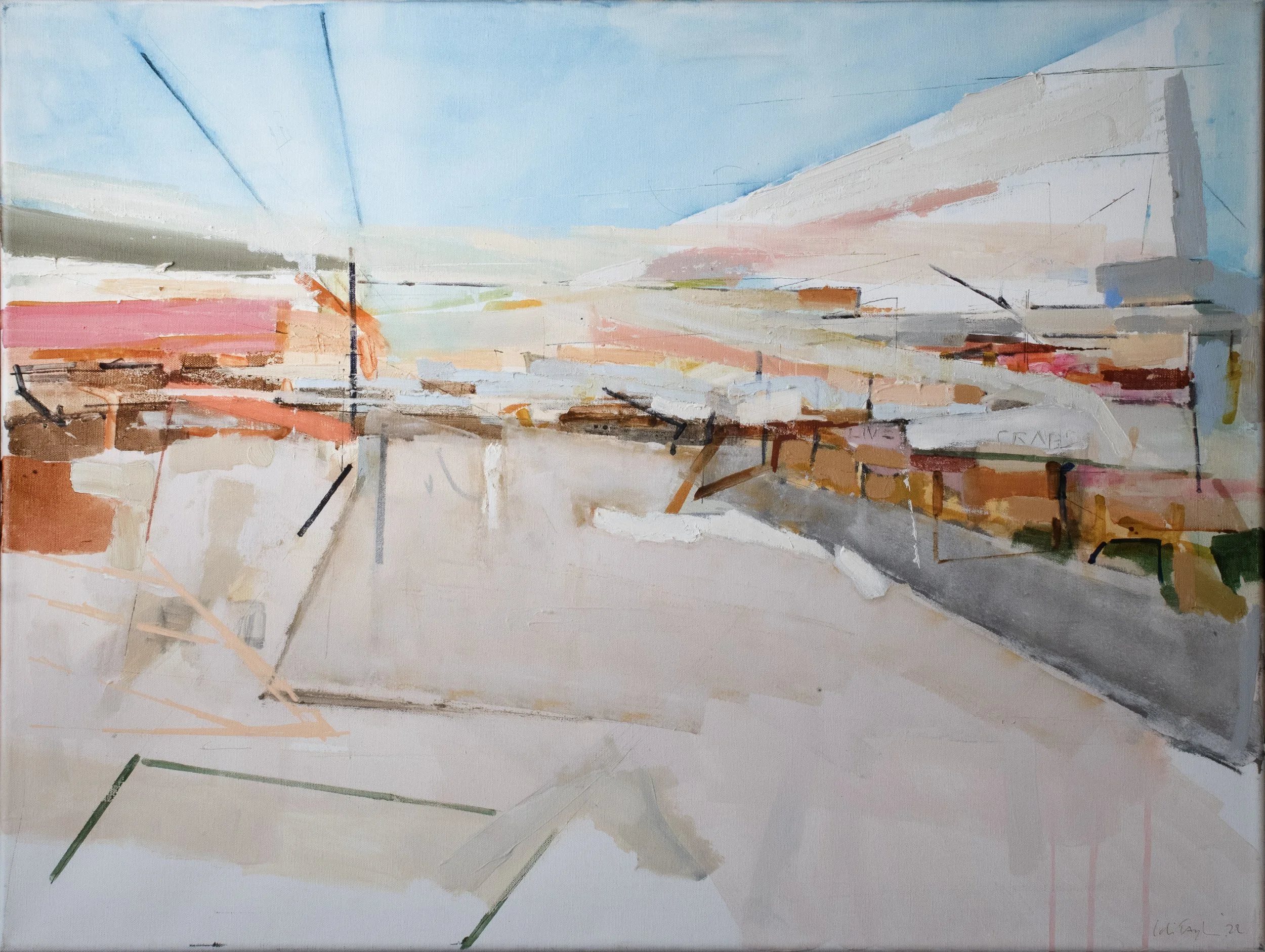Colin Taylor
Colin Taylor takes a new approach to landscapes and paints semi-abstract works, which express a personal emotional response to the natural world: “I am interested in the possibility of, and processes involved in the transfer and transformation of personal and individual experience to a visual image”. According to Taylor, these paintings reflect a convergence of experiential impact where tensions and competing recollections and emotions are played out during development and in the presented image. Through the use of a combination of media (oil, pastel, and charcoal on canvas) and a rich palette, Taylor’s application of vigorous mark-making and swirling brush strokes redefines the physical space of a landscapes’ mass into the individual perception of a place.
As well as being a painter, Colin Taylor has nearly 30-years of experience climbing and working in the mountains in continental Europe, South American, and Asia. He was born in the East Midlands, England and studied art and drama at Trent Polytechnic, Nottingham in the mid-eighties. Shortly after, Taylor moved to Manchester to work for The Guardian newspaper, specializing in economic development and destination marketing.
Twenty years ago Taylor established a small climbing gym in a disused church in North West England and in addition to painting he continues to teach people to climb, often in the English Lake District. This location was the focus for a national nine-venue exhibition tour in 2008 and 2009, of Taylors work, funded by the English Arts Council. In 2010, Taylor became the first artist-in-residence at Liverpool’s Anglican Cathedral. This culminated in a successful exhibition a year later and which subsequently transferred to Cologne cathedral in Germany. He has recently been invited to undertake a series of drawings at the National Cycling Centre in Manchester, England.
ARTIST STATEMENT
I’ve been fascinated by ‘landscape’ for a long time. Why it looks the way it does? How it has evolved, been managed, used and occasionally abused? How does my personal experience of a spatial location, add significance and meaning and somehow redefine that space as ’place’? ….and can personal experience of landscape be transferred to a single visual image?
The painter renders experience into a 2D image by pushing graphite or pigment around on a surface. When combined with both physical and intellectual input, the objects characteristics switch from a perceived reality to the representational. It is representative of, but not, the landscape. For a long time, it seemed enough to say that painting … was ‘not an optical experience but an emotional one’. Over time, I’ve come to doubt the completeness of that statement simply because it seems to discount the evolving philosophical, physiological, technological, environmental and economic terrain upon which I stand and now only seems to be a partial explanation. Paintings do not directly express the artists experienced emotions, but rather the idea of emotion.
How we perceive and represent individual experience of landscape today, has come a long way since Cezanne first articulated a visual proposal that ‘sensation’ had a direct role to play in creative output. That is not to deny the huge significance of his achievement in defining the problem of how one paints the experience of standing on the slopes of Mont St Victoire. But fortunately, for all of us today he didn’t find the solution,..... it’s still out there.












































